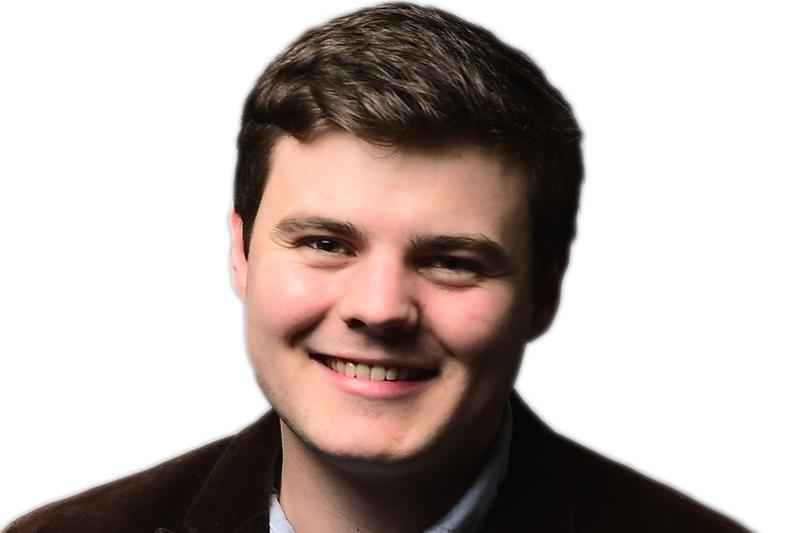Kirkland: Citizens uniting against Citizens United
October 5, 2015
Since it formally began more than six months ago, the 2016 presidential election has been a near-constant source of both frustration and a deeply cynical kind of amusement.
But over the weekend, it delivered a rare dose of good news on the issue of campaign finance. The latest round of fundraising reports from presidential campaigns revealed an encouraging surge in contributions from small-time donors, much of it going to candidates challenging the electoral status quo. This comes at a time when big-money contenders like Hillary Clinton and Jeb Bush are struggling to connect with voters and in the wake of the sudden implosion of Scott Walker’s billionaire-backed campaign.
In the past three months, hundreds of thousands of small-time donors contributed nearly $50 million to outsider candidates Bernie Sanders and Ben Carson alone, mostly in donations of $200-and-under. In this Gilded Era of campaign finance — when fundraising in the 2016 election is expected to top an unprecedented $5 billion — $200 is a small donation.
Sanders, the outspoken liberal senator from Vermont, has raised more than $26 million since July, just short of frontrunner Hillary Clinton’s $28 million fundraising total in the same period. And whereas Clinton has spent the past three months wooing big-time donors along the East and West coasts, seeking the federal maximum $2,700 individual contribution from private equity partners and tech entrepreneurs, Sanders has been targeting first-time contributors and middle-class donors. The results are impressive: He received 1.3 million donations from 650,000 donors, nearly all of them contributing online. The average online donation was $30, according to campaign officials.
Sanders’ numbers are especially noteworthy because campaign finance reform is a cornerstone issue of his campaign. Clinton is backed by the powerhouse American Bridge Super PAC, run by close ally David Brock. But Sanders has pledged to reject any Super PAC support that comes his way. On Sunday, he wrote on his Facebook page (which he runs himself), “Let me be as clear as I can be: I don’t have a super PAC, I don’t want a super PAC, and I don’t NEED a super PAC.”
But Democrats don’t have a monopoly on small-time campaign contributions.
Anti-establishment candidates seeking the Republican nomination also reported impressive support from modest donors in the last quarter. First among them is Ben Carson, the pediatric neurosurgeon who has never held elected office. He raised more than $20 million from 350,000 unique donors in the past three months.
Although Carson is hardly an evangelist of campaign finance reform, his insurgent campaign contrasts strongly with the establishment candidacies of longtime politicians like Jeb Bush. The numbers are telling: A mere 3 percent of Bush’s support came in donations under $200, compared to more than 68 percent for Carson. Say what you will about Carson as a candidate, his support from small-time donors is a hopeful sign that GOP supporters are fed up with the current campaign finance system.
Of course, it is impossible when discussing American presidential politics in 2015 to ignore the garishly coiffed elephant in the room: the huge and classy candidacy of Donald J. Trump.
In fact, the Trump Phenomenon actually serves as a good — if completely ironic — example of voter rebellion against the Super PAC system. As this sun of New York reiterated many times over the course of his glorious summer, Trump is a self-funded candidate. He has told voters not to donate to his campaign and says his personal wealth means he isn’t beholden to the kind of big-time donors propping up his opponents’ campaigns. That Trump still leads all national polls while Jeb Bush limps along is another sign that voters are tired of the electoral status quo.
The American electorate seems to be waking up to the dangers of the post-Citizens United system and mobilizing against it. Recent polling indicates the majority of Americans supports a constitutional amendment to overturn the 2010 Supreme Court decision that opened the financial flood gates. It’s not a partisan issue: 80 percent of Republicans and 83 percent of Democrats want serious reform.
In the face of inaction on the part of Congress, whose Republican leadership has repeatedly blocked campaign finance amendments, and the refusal of the Supreme Court to review its 2010 decision, voters have stepped up to the plate. With small-time donations numbering in the millions, they are retaking their place in the democratic process.
Super PAC money and billionaire support, of course, will still be essential in the 2016 race. My bet is still on Marco Rubio or Jeb Bush for the GOP nomination. And unless something substantial ever comes of this email scandal, Clinton will ride the American Bridge all the way to the Democratic Convention in Philadelphia next July. But the recent fundraising reports are good news in the uphill battle for campaign finance reform, an encouraging sign that the electorate is willing to step in where its representational institutions are failing. Democracy in America may yet make a comeback in the New Gilded Age.
William Kirkland is a Weinberg senior. He can be reached at [email protected]. If you would like to respond publicly to this column, send a Letter to the Editor to [email protected].
The views expressed in this piece do not necessarily reflect the views of all staff members of The Daily Northwestern.


